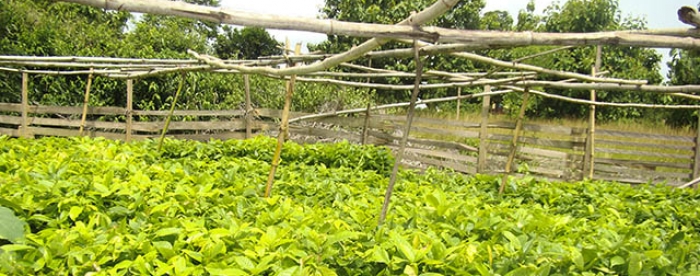News
Our stories ... ...

Ghana - 26 August, 2013
The continuous education and awareness on the impacts of illegal chainsaw milling and deforestation on Ghana’s economy and environment by the EU Chainsaw project being implemented by Tropenbos International Ghana has created a change in attitude amongst some illegal chainsaw operators.
People formerly involved in the illegal chainsaw lumber production and supply chain in four chainsaw milling communities namely Obogu, Assin Anhwiam, Feyiase and Kyekyewere have taken a bold step to go into tree plantation establishment as an alternative livelihood option. They have organised themselves into registered groups and together with the project identified tree plantation establishment as the most appropriate alternative livelihood in terms of income, sustainability and the opportunity to give back to society what they once destroyed.
With support from the project, two of the communities: Obogu and Assin Anwhiam have acquired portions of degraded forests from the Forestry Commission of Ghana to plant trees under the Modified Taungya System. This will allow for food crop production at the initial stages of the plantation establishment and those who tend the trees to maturity will have an agreed percentage of the trees when logged. Again, the project has built the capacity of these groups in tree nursery and plantation establishment, provided starter equipment and seeds for the establishment of tree nurseries and together with the communities develop management plans for the plantations.
The portions of degraded forest released are Compartment 34 of the Dome River Forest Reserve under the Juaso Forest District and Compartment 32 of Supon Forest Reserve under the Assin Forest Distric, totalling 222 hectares of degraded forest. The successful establishment of these plantations is going to add to the national food basket (due to its agroforestry component), increase the forest cover and provide livelihoods for a considerable number of rural folks.